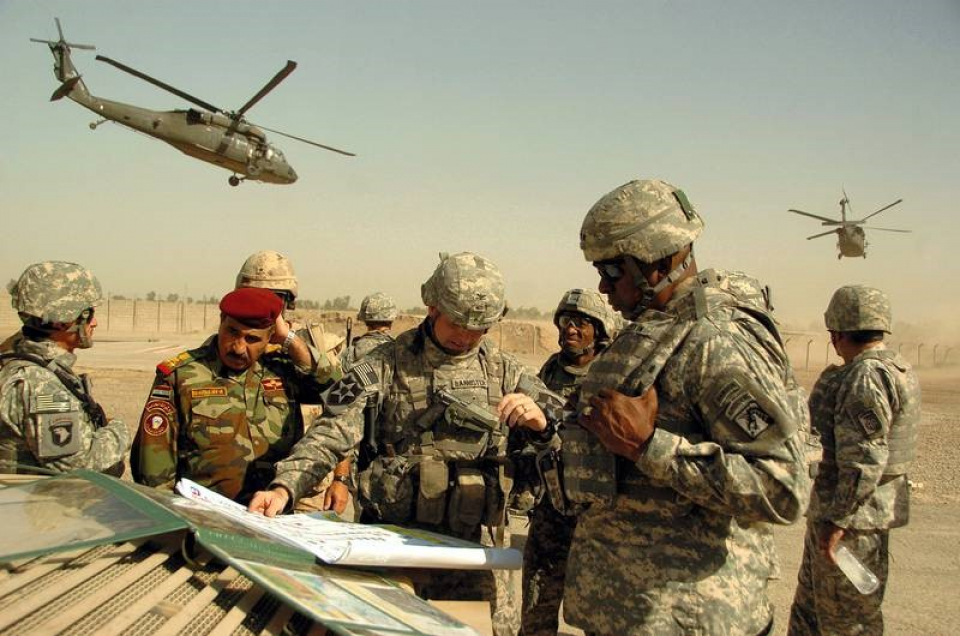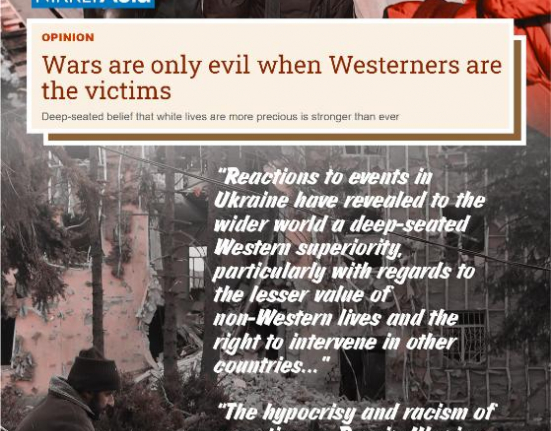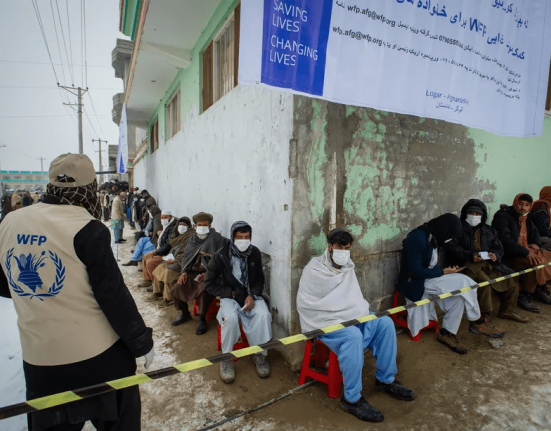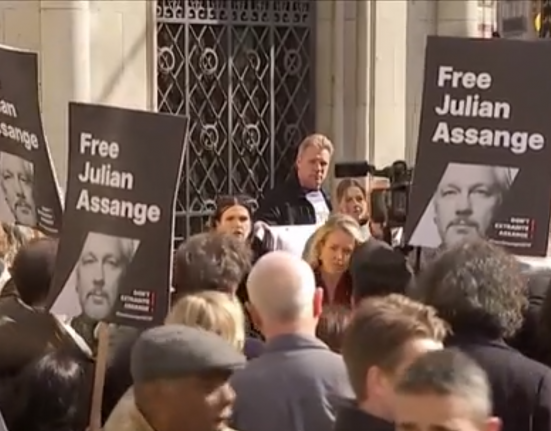by : Raghida Dergham
In his speech earlier in the week, US President Joe Biden essentially declared that under his watch America will only be reactive to provocations and won’t take the initiative to lead. Mr Biden’s America, it seems, won’t be responsible for global peace and security. This marks a radical shift both in its position as a superpower and in its dynamics with allies and rivals alike.
During the speech, in which he defended his handling of America’s messy withdrawal from Kabul, Mr Biden said his decision to end the 20-year war there was also about “ending an era of major military operations to remake other countries". The speech will have caught the attention of the US’s allies in the West and Far East. It will have reinforced the growing impression among allies that today’s America seems weaker and less interested in looking after their interests.
Policymakers in China, meanwhile, are already upping their game to fill the vacuum being gradually left by Washington. Indeed, the Biden administration’s retreat will leave the door wide open for China to build relations with countries that have natural resources it can use to expand its Belt and Road Initiative. Afghanistan, which sits on abundant mineral wealth, is but one example.
The Biden administration’s incompetence in the final days of America’s presence in Afghanistan will have prompted some in Beijing to question whether the US president should even be considered a worthy adversary. China, which has emerged as America’s new Cold War rival in the eyes of recent US administrations, will start pressuring the current administration in upcoming negotiations and drive a hard bargain where possible.
Russia, which is second only to China in the Biden administration’s list of priorities, will also be a beneficiary of wobbly American foreign policy. In his speech, Mr Biden said: “There's nothing China or Russia would rather have, would want more in this competition than the United States to be bogged down another decade in Afghanistan.”
Yet, both China and Russia are likely to view the resurgence of Al Qaeda and ISIS in the Middle East and Central Asia as a bigger problem for the US than it is for either of them, given the fact that these groups have primarily been hostile towards America. These groups have the ability to ruin Mr Biden’s plan to withdraw from countries such as Afghanistan – with the rationale of protecting America and her interests and ending wars on behalf of others – by further implicating him in such wars.
Indeed, what would the Biden administration do if Al Qaeda or ISIS or both use Afghanistan or Iraq or both to launch attacks on American soil, now that US-led forces have withdrawn from the former and are in the process of pulling out combat troops from the latter, thereby leaving no other operational capabilities except complex and ineffective air strikes from afar?
America’s receding stakes in global peace and security mean that its ability to shape trends will be limited, as it allows, for instance, Russia to expand its influence in the Middle East. I have reason to believe that as Russia consolidates its influence in Syria, it intends to build relations with Iraq. Moscow’s rationale will be that shared interests with Iran in Iraq – similar to an already existing coalition inside Syria – will put Kremlin in a stronger position in the Middle East and in the American-Russian equation.
Moscow is spotting a historic opportunity in the US retreat from the region, and in the European failure to play a leading role, as we have seen following the visit of French President Emmanuel Macron to Iraq recently. Iraq is strategically invaluable to Moscow, both for its oil wealth and as a key gateway to Syria. Russian policymakers are, therefore, determined to enhance Russian-Iranian partnership, despite Moscow’s favourable equations with Arab Gulf countries.
Russia is also reassured by the American-European failure in Afghanistan not only in terms of existing relations within the Nato alliance, but also in terms of its impact on Europe’s policy vis-a-vis Russia. Before the Afghanistan crisis, the Europeans came to believe that their proximity to the Biden administration will make them a key global player, and thus sought to flex their muscles against China and Russia. Today, however, Moscow sees the Europeans as weak powers with little influence.
In fact, the appetite in some European countries for re-entering coalitions with America has declined. A few of them will welcome these alliances, because they need the US’s contribution towards the West’s collective security. At the same time, however, it has chilled European ambitions that had emerged during the short honeymoon its members enjoyed with the Biden administration.
Perhaps reviving the nuclear deal with Iran will be the only success story for the European countries, which de facto not only represent Iran’s interests in the Vienna talks but are also pressuring the US to yield to Tehran’s blackmails and diktats following the election of Ebrahim Raisi.
Mr Biden stands to lose in the Vienna talks, whether he yields or not. Tehran is reaping the fruits of his administration’s mistakes in Afghanistan, and will do the same in Iraq once the US withdraws. In Iraq, it lies in wait for the post-American era to begin.
America’s 46th president has decided that reducing America’s influence means calming America, and that downsizing its role will protect it. This is a huge gamble for American prestige. More dangerously, this downsizing could leave America at the mercy of terrorists – amid genuine fears of a terror strike during the 20th anniversary of the 9/11 attacks next week.
The US military will need time to absorb the impact of the Afghanistan crisis, before it can properly plan its exit from Iraq. While the military executes the orders of the president, it is unlikely to be proud of America’s shrinking stature in the world and the reputation for abandoning its allies.
There is still time for Mr Biden to change course in Iraq and reverse his decision to withdraw combat troops from the country. Else, there could be an ambush waiting for him – metaphorically speaking – from Iran and ISIS. Iraq could be the place where whatever is left of America’s prestige is completely destroyed.
There is still time for Mr Biden to change course in Iraq and reverse his decision to withdraw combat troops from the country. Else, there could be an ambush waiting for him – metaphorically speaking – from ISIS. Iraq could be the place where whatever is left of America’s prestige is completely destroyed.
















